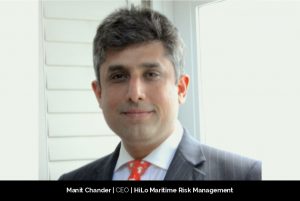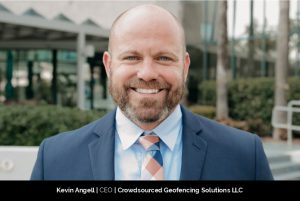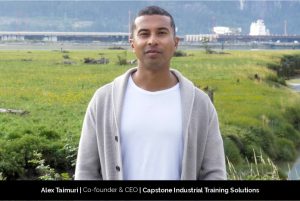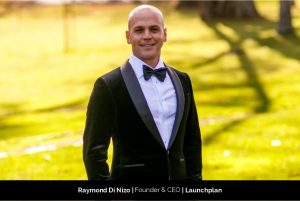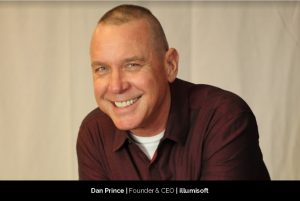Denson Xu: BANEKS is Empowering Secure Peer-to-Peer Currency Exchange
Top 10 Most Inspiring CEOs of Influence in 2021
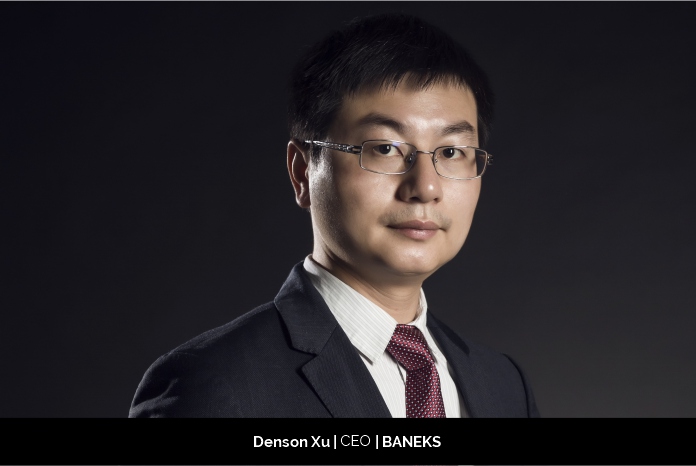
International travelers find it quite difficult to get
currency exchanged. Many countries only accept US dollars (USD), and it can be
a costly hassle to exchange remaining local currency back into USD. So even the
most experienced traveler, for instance international workers or International
students and migrants, struggle with money exchange and transfer. Seeing this
problem first hand, Denson Xu, Founder and CEO of BANEKS, set out to develop a
smart and secure solution for currency exchange that is the answer to
traveller’s currency exchange woes.
“Before I was assigned as the CEO of ZTE’s Canadian
company in 2012, my job was to develop international business for that
telecommunication giant. I used to travel very frequently, more than 300 days a
year, to over 50 countries for years,” explains Denson. “After my
travels, I always seemed to end up with small amounts of local currency left in
my pocket.”
After Denson moved to Canada, he found that many people
would resort to exchanging money with strangers. He saw this practice first
hand in his own Chinese community. Says Denson: “There is a $50,000 USD annual
limit for every individual to send/receive money to/from China, which makes it
more inconvenient for people to move the money. But at the same time the
unsecured and unregulated nature of peer to peer transactions left people
vulnerable to fraudulent and criminal activity. I wanted to build a secure
platform that had all the flexibility of peer-to-peer transaction but without
the risk of fraud and money laundering. That is why I quit my job in 2018 and
founded BANEKS.”
A Remittance Market Ripe for Disruption
Banks and money transfer offices (MTOs) (like West Union)
have traditionally dominated the money transfer domain. But for inspiration,
Denson looked to his experience in the telecommunications world. “At one time
the international long distance call service was super expensive and dominated
by a few players,” he says, “Then Skype came into the market, and more and more
technology companies began disrupting the status quo and eventually
international long distance call service became free. I believe the remittance
industry is one of the next industries ripe for disruption by FinTechs like
BANEKS in the coming years.”
Denson realizes that building a strong brand around BANEKS
means winning a customer’s trust. That means finding the right customer segment
and solving their problem reliably. “We do not have the deep pocket to invest
millions of dollars to build our brand name. It took us a long time to find the
right segment to break through and get our first customers. However, with more
and more customers using our product all the time, we’re building strong word
of mouth and reputation. This means our customer base is growing very fast
without an expensive ad spend.”
BANEKS enables its customers to have a multi-currency
digital wallet so that they can easily transfer money between their home
country and country of residence. Just as Alipay and Wechat are renowned in
China, BANEKS help users in North America instantly send money or collect money
directly to/from their Alipay and Wechat account. It is a transfer method that
traditional financial institutions cannot provide. .
An easier way to manage the international flow of money
Rather than relying on SWIFT system or local payment rails,
the BANEKS team relies on people to power its money transfer business model. As
a peer-to-peer transaction facility provider, BANEKS brings an Uber-like
experience to money transfer, which means one group of customers, called Fetta,
offers up liquidity as well as fast service for other customers. Fetta works
just like a mobile ATM. Customers can both deposit and withdraw money as
and when they desire. The higher the number of customers, the more efficient
the BANEKS platform will be.
The company got its early traction focusing on niche
markets.
Says Denson “We began with exotic currency pairs, because
customers in that market are underserved and the competition from traditional
banks and MTOs is small. And we worked hard to provide the best customer
experience to meet their day-to-day needs.”
BANEKS has created an easier way for people to
purchase product in their home country and even send/receive money to/from
their friends and family in their home country without any hassle.
Says Denson, “Our vision is to make the money transfer
borderless. People can freely and instantly move their money between home
country and their country of residence, like as if they are doing a domestic
financial transfer. The world is getting smaller. More and more people live,
work, or study in other countries and we need to offer them easier ways to
manage the financial flow of money.”
Balancing between the CEO and Home Roles
For Denson, leaving his corporate career and transforming
his whole life by becoming an entrepreneur has not been easy. But it has been
an enjoyable journey. He adds, “I am very proud that I have successfully built
our venture from 0 to 1, and that I’ve gained the trust of more than 20K
customers in just over a year. Whenever I received encouragement and
appreciation from my customers, I realized I am doing something valuable and
meaningful for the community. All my efforts will be paid back.”
Denson feels that, as the CEO of a startup, he’s not just
the Chief Executive Officer. He’s the Chief Everything Officer. “I am not only
responsible for the vision and strategy of the company, but I have to get my
hands dirty. I am involved in product, design, marketing, operation, financing,
business development, you name it. But every piece of positive feedback from
customers, and every achievement motivates my team and I to keep going.”
The future of BANEKS is borderless
Denson firmly believes that the future of financial transactions is borderless. While he’s initially focused on expanding within the Chinese community, he intends to slowly spread BANEKS’ wings to Indian, Philippine, Mexican, Russian, Vietnamese and other communities where the largest number of international students, workers and migrants reside. He shares, “Our plan is to become a global company. We began in Canada, but our plan is to expand to US, UK, Europe, Australia, and other OECD countries where is the popular destination for international students, workers and migrants.”






